First 'new' grammar school in 50 years
- Published
- comments
Sarah Shilling has been campaigning for a grammar school in Sevenoaks
England is to get its first "new" grammar school for five decades after ministers allowed a grammar school to build an "annexe" in another town.
Weald of Kent school in Tonbridge will open a site in Sevenoaks, Kent - side-stepping a ban on new grammar schools.
But Education Secretary Nicky Morgan said this would not "open the floodgates" to more schools being allowed to select by ability.
Labour described the decision as a "hugely backward step".
The decision to allow the new grammar school site, with places for 450 girls, has raised expectations of similar bids in other parts of the country.
But Mrs Morgan said this was a "genuine expansion" of an existing school - describing it as "one school, two sites" - and it "does not reflect a change in this government's position on selective schools".
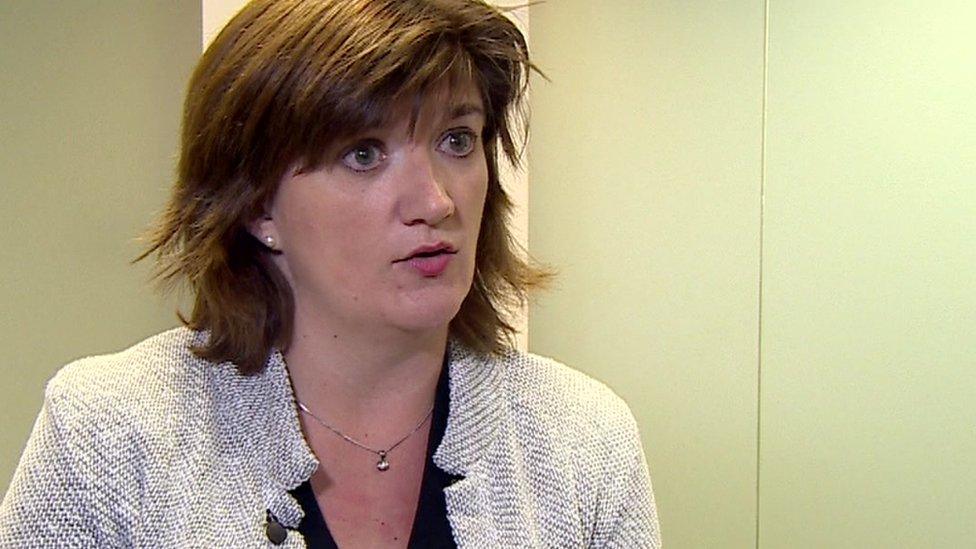
This decision will not open the "floodgates" to more grammar schools, says Nicky Morgan
The education secretary said that the ban on new grammars would remain.
"I don't want to fight the battles of selective and non-selective... This is one particular application with one particular set of circumstances. Why would I deny a good school the right to expand?"
"I don't think this will open any kind of precedent or floodgates."
Any bids from other grammar schools would still face the "statutory prohibition" on new selective schools and would need to "meet the criteria for being a genuine expansion", said the education secretary.
The school in Sevenoaks is due to open in September 2017, after a long campaign by supporters.

Analysis
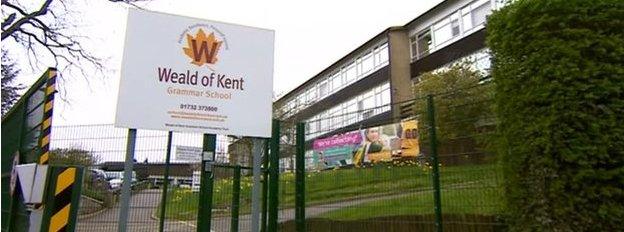
Sean Coughlan, BBC education correspondent
This will be seen as a symbolic reversing of the tide, after many decades in which grammar schools were seen as a receding emblem of the educational past, rather than an expanding destination for the future.
While this decision will be warmly welcomed by traditionalists in the Conservatives' ranks, it will be a double-edged sword for the government. Their education reforms, promoting academies and free schools, have made a prime virtue of raising standards for all, rather than focusing on the academically most able. That policy sits uneasily beside a rejuvenated 11-plus exam.
When David Cameron had the shadow education brief for the Conservatives, one of his clearest steps was to distance himself from the ideological trench warfare of the pro and anti-grammar campaigners.
Ministers won't want the return of grammars to drown out their education policy, so they will want to play down suggestions that this decision could open the floodgates to a wave of such satellite selective schools.
Grammar schools: What are they?

Labour passed laws in 1998 banning the creation of new grammars - which are selective state schools - but existing schools are allowed to expand if there is sufficient demand.
A previous plan for such an extension of the Weald of Kent Grammar School was turned down, when ministers were not persuaded that it would be a branch of an existing school rather than the creation of a new institution.
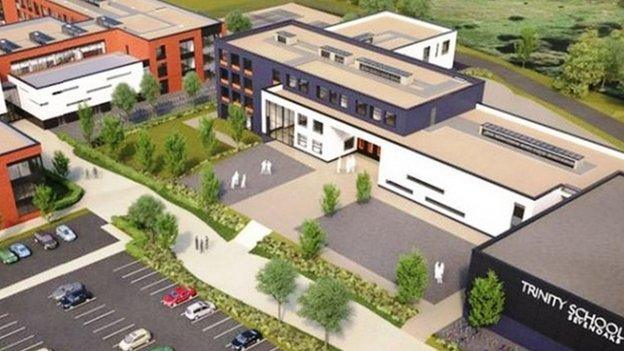
Artists' impression of the grammar school to open in Sevenoaks in September 2017
Andrew Shilling, of the Sevenoaks Grammar School Campaign, said the decision was a "victory for parent power".
"Today's news is overdue recognition of the fact that a Sevenoaks grammar school is supported by the vast majority of local parents."
In last year's GCSE results, 99% of pupils at the Weald of Kent Grammar School achieved five A*-C grades. The national average for England is 63%.
Pressure on places
Local MP Michael Fallon welcomed the announcement as ending the "absurd situation of Sevenoaks being the only area in Kent not to have a grammar school".
"It will also help to ease the growing pressure on school places in west Kent."
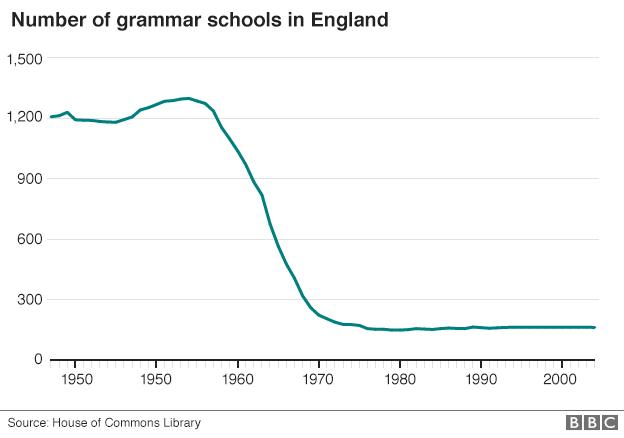
But Ofsted chief Sir Michael Wilshaw says that while he backs the idea of a "grammar school ethos" such selective schools needed to "make sure they admit children from all backgrounds and particularly poor backgrounds".
"Remember this - for every grammar school you create, you create three secondary moderns and I can't see parents queuing up to send their children to more secondary moderns," said Sir Michael.
There will now be an expectation that others among the 163 remaining grammar schools could seek to open branches in other towns. There are some local authorities, such as Kent and Buckinghamshire, which have retained grammar school systems.
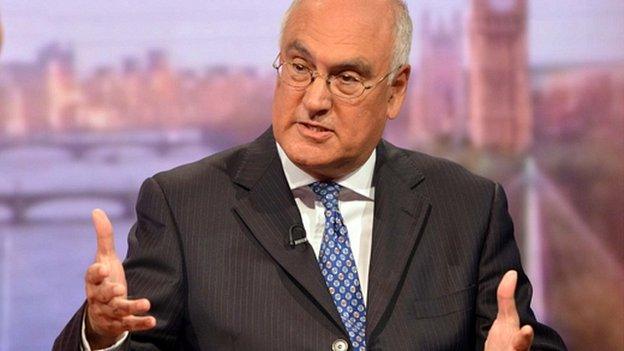
Sir Michael Wilshaw: "For every grammar school you create, you create three secondary moderns"
There has been a strong campaign by some Conservative MPs for greater availability of grammar schools, arguing that they drive social mobility by providing high-achieving schools for bright pupils, regardless of where they live or family income.
Grammar school supporters will see this as a symbolic boost for a type of school that was phased out in most parts of England more than 40 years ago.

Grammar schools
There are 163 grammar schools in England, admission by academic exam, non-fee paying
There were almost 1,300 in the mid-1960s, teaching about 25% of pupils
In 1965, the education department told local authorities to convert to a comprehensive system
It was not compulsory and some authorities retained grammar systems, including Kent
Since the late-1970s about 5% of secondary pupils attended grammar schools
In 1998, legislation barred the opening of new grammar schools
Supporters say they provide an opportunity for poor, bright pupils
Opponents say grammar school intakes are disproportionately affluent

But opponents of selective education were highly critical.
Melissa Benn, of Comprehensive Future, said that academic selection at the age of 11 was "unfair, unnecessary and divisive".
Ms Benn said it was "absurd" to suggest that the school would be an annexe, rather than a wholly new school, adding the decision could have "far reaching consequences".
Mary Boyle, principal of the local academy, says this could undermine other nearby schools
Graham Brady, chairman of the Conservative backbench 1922 Committee and a prominent campaigner for grammar schools backed the decision.
"This is a small but positive step. It improves choice for parents," said Mr Brady.
The Sutton Trust, which promotes social mobility, highlighted research that less than 3% of pupils in grammar schools were entitled to free meals, compared with an average of 18% in the areas they serve.
Labour's shadow education secretary Lucy Powell said the grammar expansion was a "new school in all but name" - and she called on Mrs Morgan to publish the advice given to her by civil servants.
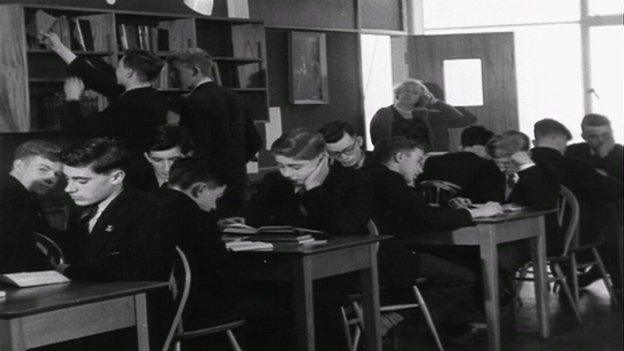
Local authorities were told to switch to comprehensive schools from 1965
Ms Powell also accused the grammar school system of being a barrier to social mobility.
"They do not increase equality of opportunity, they make it worse. Tiny numbers of children from disadvantaged backgrounds pass their tests because they are the preserve of the privately tutored," she said.
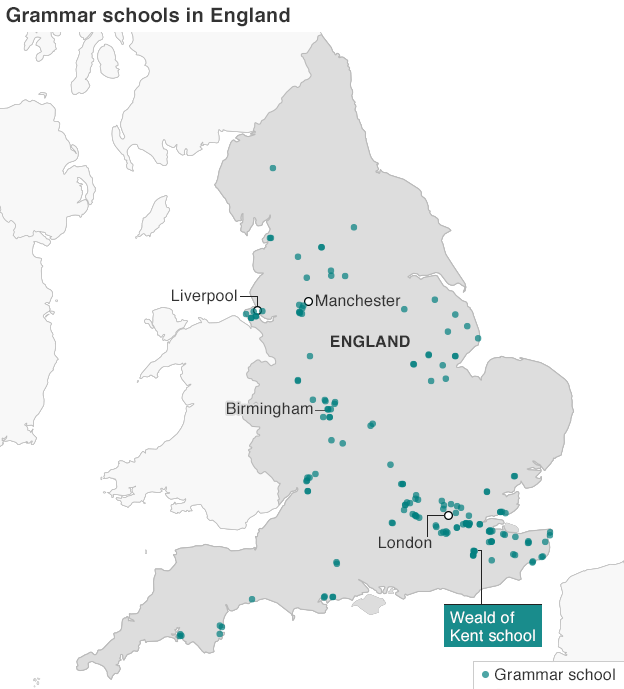
- Published8 September 2016
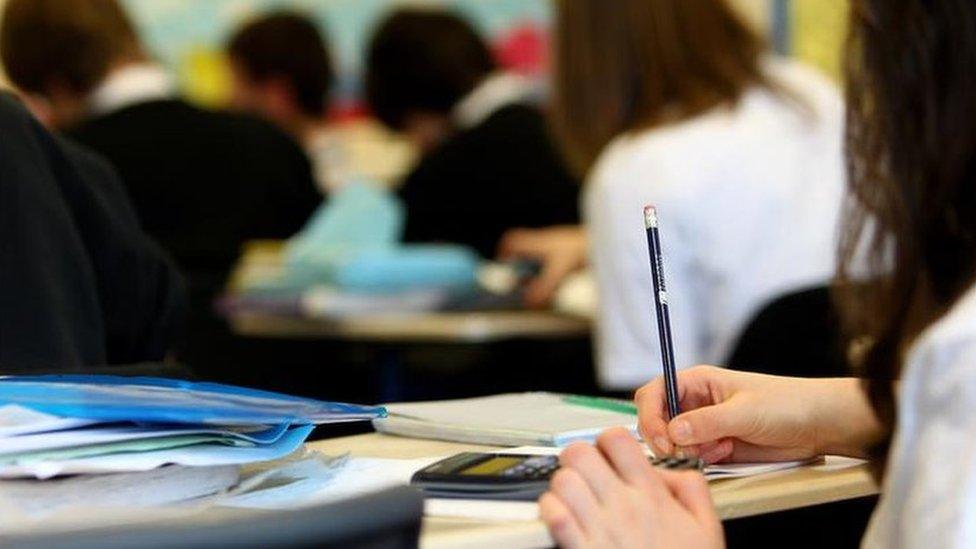
- Published15 October 2015
- Published15 October 2015
- Published13 March 2013
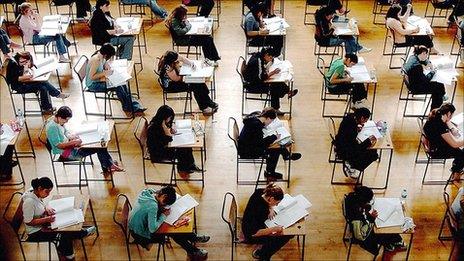
- Published9 January 2013
